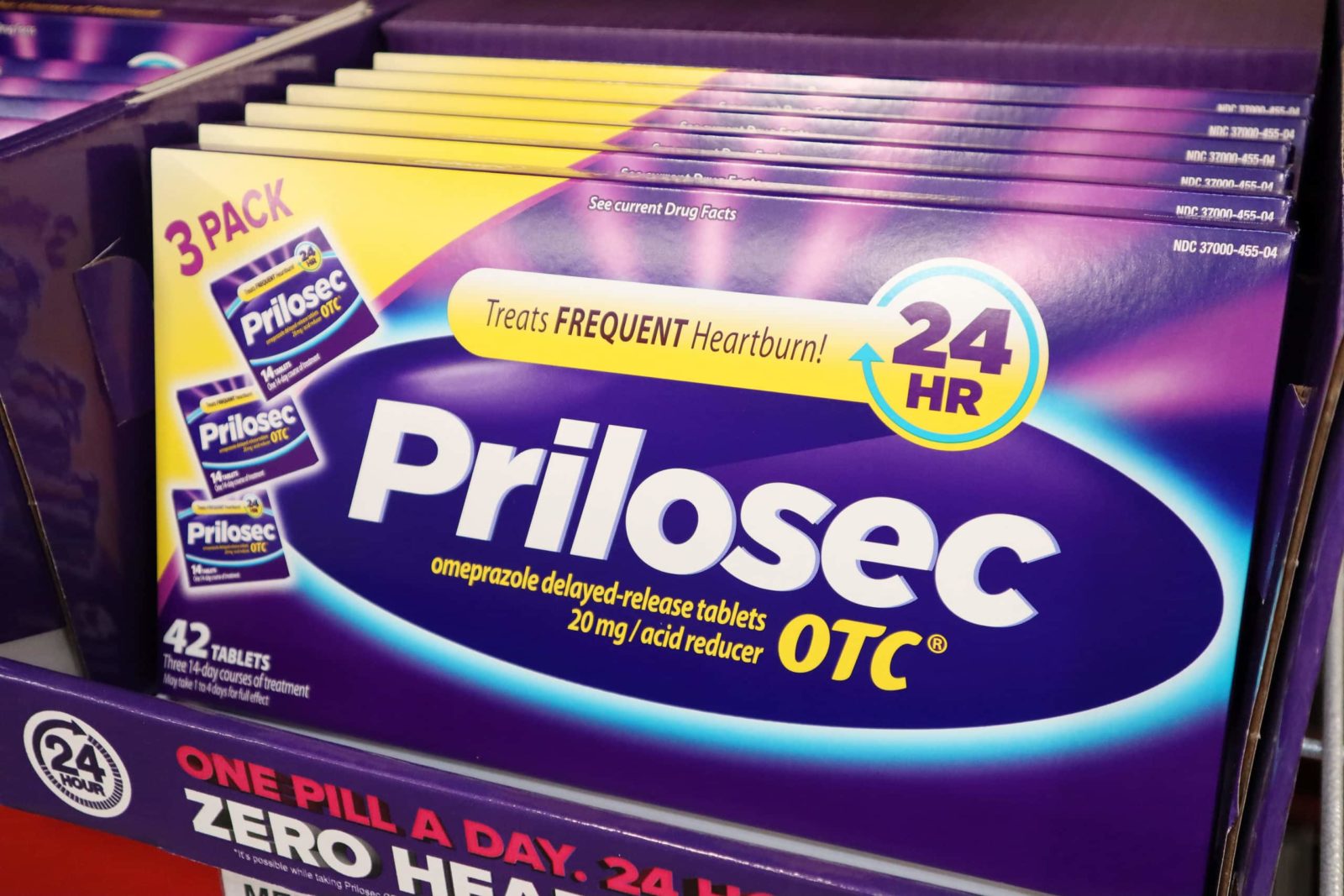At-A-Glance
- PPIs (proton pump inhibitors) are a class of acid-suppressant medications that have been shown with long-term use to be associated with an increased risk of developing reflux-caused esophageal cancer.
- While PPIs can sometimes improve symptoms — still only about 60% of people with heartburn — they never cure reflux disease; in fact, the disease goes on unchecked, but with fewer telltale symptoms; that’s why PPIs increase the risk of developing esophageal cancer, and it’s deadly esophageal cancer!
- Unfortunately, most PPIs — Nexium, omeprazole, Prilosec, omeprazole, Prevacid, pantoprazole, Dexilant, etc. — are now available over the-counter without a prescription — and with no medical supervision, people have no idea that they should avoid these dangerous drugs.
- Other untoward events and side effects of PPIs include sudden cardiac death, abdominal pain, diarrhea, bloating, constipation, and rebound hyperacidity (when they are stopped), just to name a few. See My Previous PPI Blog.
- Today, 30 million people are taking PPIs (with sales of $26 billion), but PPIs should be removed from the market by the FDA for being both ineffective and unsafe.
In 2014, I completely stopped using PPIs (proton pump inhibitors) in my practice following publication of the Danish Study (reference below): in a national study of almost 10,000 patients, it was shown that long-term PPI (proton pump inhibitor) use increased the risk of esophageal cancer by 120% compared to a comparable patients not on PPIs. When I read the article, I went, “Duh”! That’s because PPIs NEVER cure reflux — virtually all of my patients came to failing medical treatment on PPIs — they can improve some symptoms (heartburn 60%) BUT reflux disease goes go on unabated. PPIs are like a big band aid that cover up a big problem.
Avoid PPIs! In addition to the cancer risk, PPIs cause a lot of other problems and side-effects. Tell your doctor that you do not want to be on a PPI, and tell her that they don’t work anyway, especially for LPR. You can get off them using famotidine 20 mg. before each meal and bed with Gaviscon Advance aniseed after each meal: see my previous PPI post. For an overview of treatment, read my Pepsin Blog and Silent Reflux Blog. In my opinion, there is enough data to for the FDA to remove PPIs from the market. Ah, but here’s the rub: The influence of money and powerful big pharma — PPIs are a $3.5 billion a year business! Here is a list of PPIs:
Aciphex
Dexilant
dexlansoprazole
esopmeprazole
Nexium
omeprazole
pantaprazole
Prevacid
Prilosec
rabeprazole
Zegerid
As an alternative to PPIs, in addition to being safe, H2-Antagonists — famotidine, Pepcid, cimetidine, Tagamet — are effective acid-reducers, and notably better at acid-suppression (than PPIs) at night, that is, for Silent Nighttime Reflux. You can taper off PPIs with famotidine and Gaviscon, as well as a reflux Detox program; see Dropping Acid: The Reflux Diet Cookbook & Cure.
Reference: Hvid-Jensen, L. Pedersen, P. Funch-Jensen, AM Drewes. Proton pump inhibitor use may not prevent high-grade dysplasia and oesophageal adenocarcinoma in Barrett’s oesophagus: a nationwide study of 9883 patients. Alimentary Pharmacology and Therapeutics pp. 1-8 (2014)









